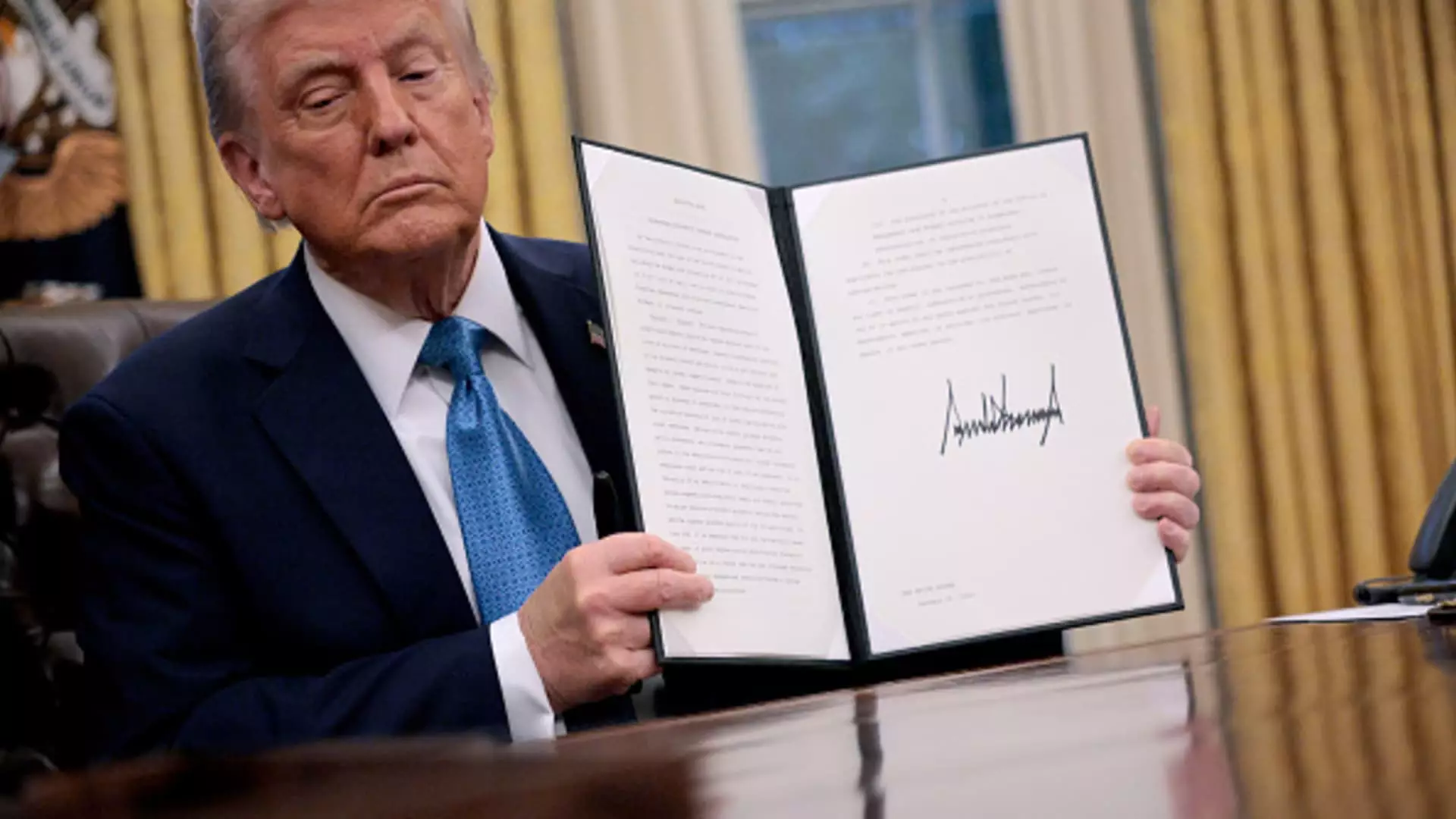On Monday, the U.S. stock market experienced significant volatility reminiscent of tumultuous times in economic history. The catalyst? President Donald Trump’s latest moves that many perceive as the ignition for a potential global trade war. This article delves into the intricate dynamics of the market response following Trump’s imposition of tariffs on goods from Mexico, Canada, and China, analyzing the broad implications across various industries and the anticipated effects on corporate earnings.
President Trump’s announcement of a 25% tariff on imports from Mexico and Canada, coupled with a 10% tariff on Chinese products, sent shockwaves through the financial landscape. Although Trump indicated a temporary pause on tariffs against Mexico after diplomatic efforts were made, the long-term ramifications linger in the air. Businesses across the automotive, industrial, and retail sectors, among others, are acutely aware that these measures can inflate operational costs and disrupt established supply chains.
Goldman Sachs has raised alarms, predicting that such tariff actions could trigger a worrying 5% decline in stock prices, a stark reminder that investor confidence is intimately tied to trade stability and corporate profitability.
The automotive sector stands as a prime example of where the impact of these tariffs could be most profound. Major manufacturers, including General Motors, Ford, and Stellantis, rely heavily on interconnected operations that span North America. Any interruption in the supply chain could hinder production capabilities, compelling these companies to reconsider their cross-border strategies.
In tandem, the beverage industry is facing immediate repercussions. Constellation Brands, a significant importer of alcoholic beverages from Mexico, finds itself caught in the midst of escalating tariffs. Canada’s response to impose retaliatory measures against U.S. imports adds another layer of complexity to an already complicated industry scenario.
The restaurant industry is not immune to these tariffs. For instance, companies like Chipotle Mexican Grill may see increased costs for avocados imported from Mexico. Parallel to this, retailers such as Five Below and Dollar General—predominantly reliant on affordable imports—may experience significant disruptions in their supply chain, which could directly affect their pricing strategies and consumer demand.
The economic reverberations of such tariff activities extend beyond individual sectors. As goods become more expensive to transport and trade routes get disrupted, the very fabric of the American economy is threatened. Rail operators, such as Union Pacific and Norfolk Southern, face the prospect of reduced freight volumes, jeopardizing their financial health.
Moreover, the tariffs target a specific trade exemption known as the “de minimis” provision, which has previously paved the way for budget online retailers to flourish. Websites like Temu and Alibaba’s AliExpress, which leverage this loophole to deliver affordable products, may find their business models severely constrained, thus reshaping the landscape of e-commerce in unpredictable ways.
As the market braced for a potential downturn, investor sentiment became increasingly wary. The interconnected nature of global supply chains presents complications wherein disruptions can lead to cascading financial impacts. Companies that heavily rely on Chinese manufacturing, such as Nike and Lululemon, could see their operational costs escalate, driving up retail prices and hurting sales in both the U.S. and international markets.
Looking ahead, the stakes are exceptionally high. If tensions continue to rise and additional tariffs are implemented against the European Union or other trade partners, broader economic stability may come under threat. Consumer prices may soar, purchasing power could decline, and ultimately, corporate profits might suffer.
The unfolding trade war led by President Trump signals uncertain times ahead for various sectors within the U.S. economy. With immediate impacts observable in industries from automotive to retail, the broader implications for investor confidence and market stability cannot be overstated. As companies traverse this treacherous landscape, the hope remains that diplomatic solutions can be prioritized over tariffs to foster a more stable and prosperous economic future. The coming months will be critical in determining the trajectory of corporate health and overall market resilience in the face of mounting trade tensions.

